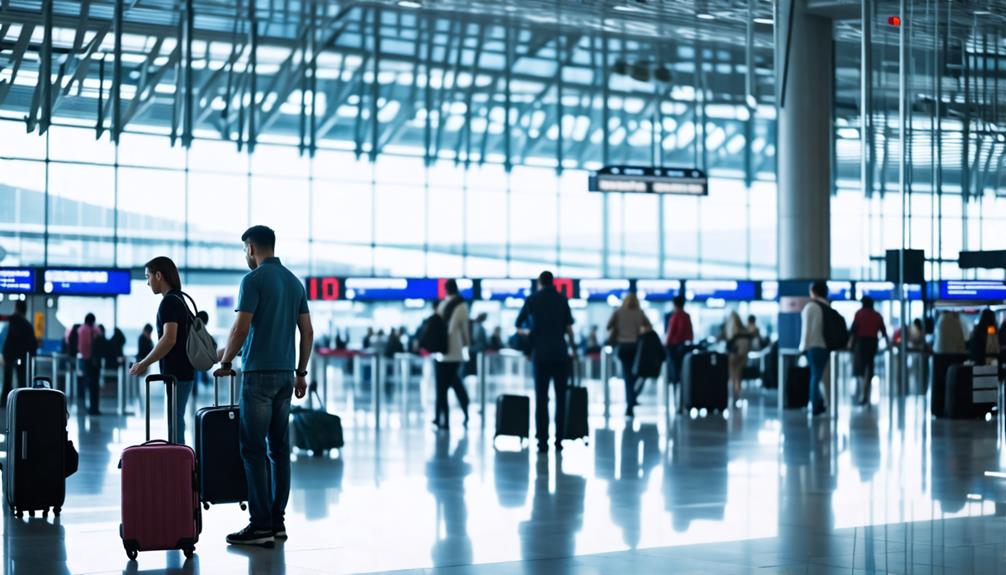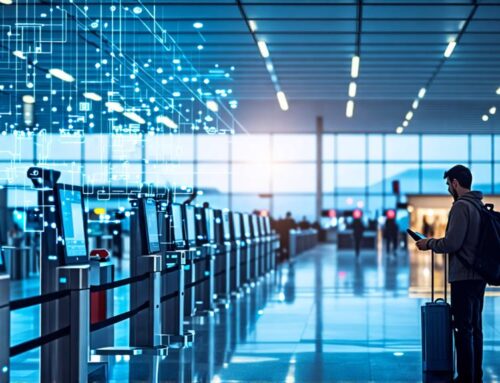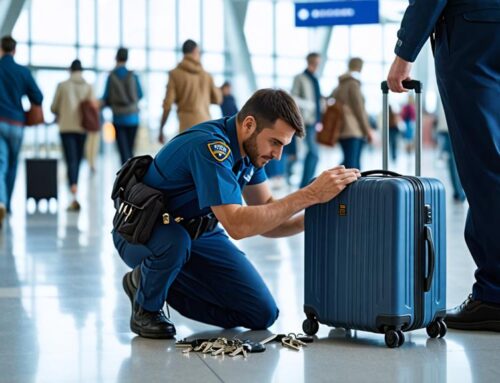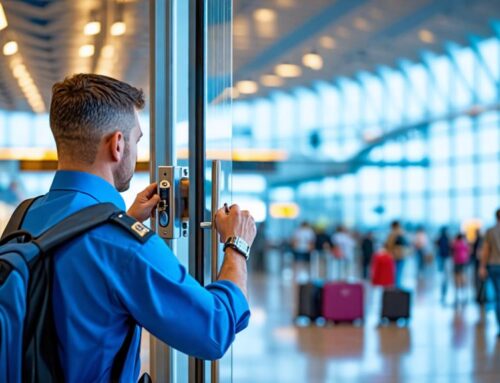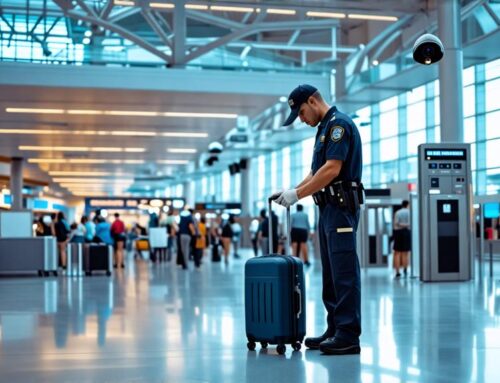You secure your luggage, you trust the locks, and you expect safety in every corner of the airport. But have you ever considered the essential role locksmiths play in this intricate security dance? From crafting advanced locking mechanisms for your bags to managing sophisticated key systems in restricted zones, locksmiths are the unsung heroes of airport security. They’re not just about keys and locks; they’re about ensuring compliance with regulations and swiftly responding to emergencies. So, what happens when technology meets tradition in airport security, and how do locksmiths blend these domains seamlessly?
Key Takeaways
- Locksmiths secure passenger luggage using advanced tracking technologies and security seals to prevent unauthorized access and theft.
- Key management systems integrate digital key solutions for robust, traceable control over access to critical airport areas.
- Biometric authentication and electronic locks prevent unauthorized access in staff areas and restricted zones.
- High-security locks and continuous risk evaluation are essential for securing access points and maintaining regulatory compliance.
- Rapid response techniques and emergency lockout solutions ensure swift access restoration while adhering to aviation security regulations.
Securing Passenger Luggage
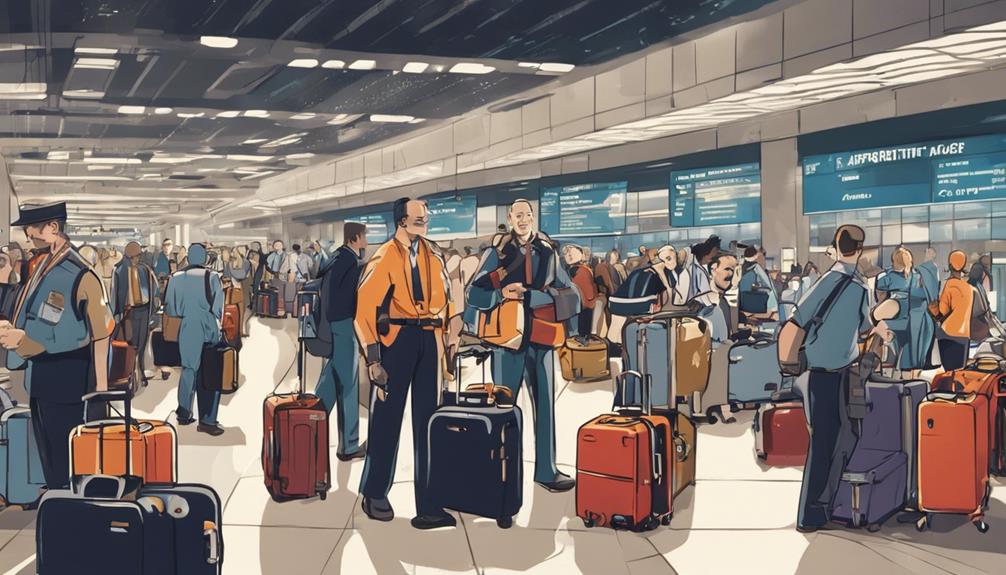
When it comes to securing passenger luggage, locksmiths play an indispensable role in airport security protocols. You must understand how significant their expertise is in implementing robust systems like luggage tracking and security seals.
By leveraging advanced tracking technologies, locksmiths guarantee each piece of luggage is accounted for from check-in to arrival. This tracking isn’t just about knowing where bags are; it also involves evaluating risks to prevent unauthorized access. Additionally, locksmiths address both physical and digital security challenges, as highlighted in The Essential Role of Locksmiths, which is critical in high-traffic areas like airports.
Locksmiths design and maintain security seals that protect the integrity of luggage. These seals act as a physical deterrent against tampering and theft.
If you want to grasp the magnitude of their importance, consider the regulatory standards they must meet. International aviation authorities mandate stringent security seal protocols, guaranteeing that only authorized personnel can breach these defenses.
Key Systems for Staff Areas
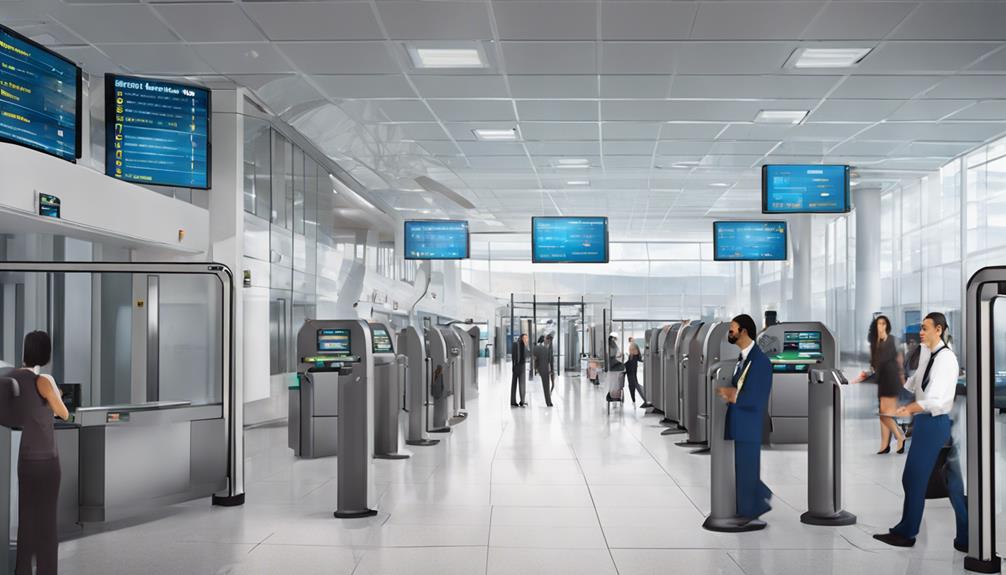
Access control is vital in managing key systems for staff areas at airports. You need a robust system to prevent unauthorized access and guarantee operational integrity. Traditional locks are vulnerable to key duplication, which poses significant security risks. To mitigate this, you can implement high-security lock systems that minimize such vulnerabilities. Ascertain that these locks are pick-resistant and patent-protected to prevent unauthorized key duplication.
Regular maintenance of locks and systems, as locksmiths contribute to maintaining overall security, is also essential.
Electronic locks offer a dynamic solution, granting you the ability to control access remotely and monitor entry points in real-time. These locks eliminate the need for physical keys, reducing the risk of loss or duplication. You should choose electronic locks that integrate seamlessly with existing security frameworks and comply with aviation security regulations. They’re programmable, allowing you to set access levels for different staff members, ensuring that only authorized personnel can enter sensitive areas.
Regular audits and staff training are essential in maintaining the efficacy of your key systems. Stay informed about the latest advancements in locking technologies and regulatory requirements. By doing so, you’ll enhance security, streamline operations, and maintain the power to safeguard critical zones within the airport environment.
Access Control Technologies
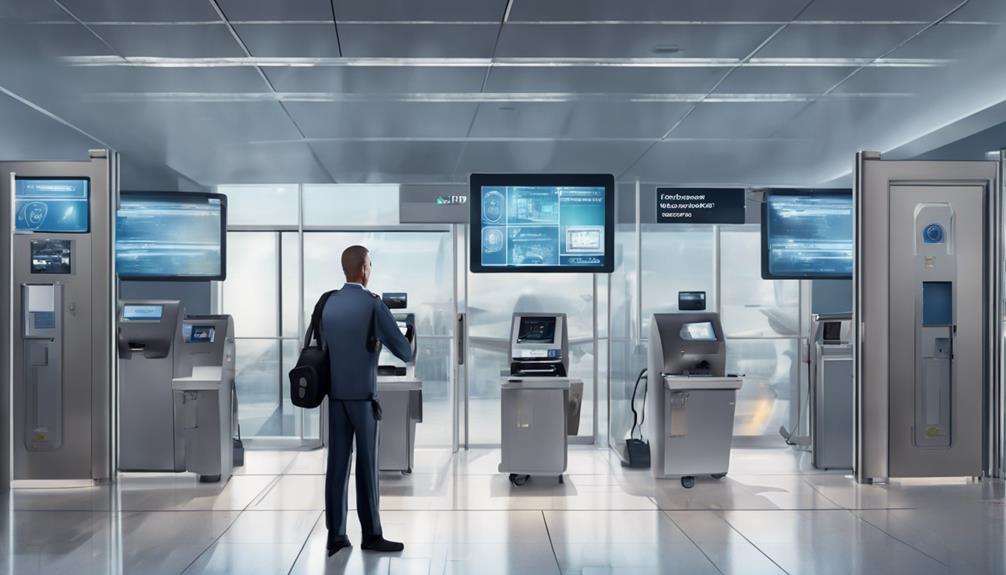
Integrated access control technologies play an essential role in fortifying airport security, offering a multifaceted approach to managing and monitoring entry. By implementing biometric authentication, you guarantee that access is granted only to verified individuals, leveraging unique physical characteristics like fingerprints or iris patterns.
Locksmiths are instrumental in this process, as they contribute to maintaining the overall security within airport terminals by guaranteeing these systems are functioning efficiently. This method not only enhances security but also aligns with stringent regulatory compliance, minimizing unauthorized access and potential security breaches.
Incorporating electronic locks into your security infrastructure further strengthens this framework. These locks allow for seamless integration with existing systems and provide real-time access logs, enabling you to track and audit entry data with precision. This level of control is indispensable in environments where safeguarding sensitive areas is non-negotiable.
Electronic locks can be remotely managed, providing you with the flexibility to adapt to evolving security requirements swiftly. Your ability to harness these technologies signifies a proactive stance in risk assessment, demonstrating a commitment to maintaining the highest security standards.
As threats become increasingly sophisticated, adopting integrated access control technologies positions you at the forefront of airport security, guaranteeing you’re equipped to protect critical assets and uphold operational integrity at all times.
Maintaining Restricted Zones
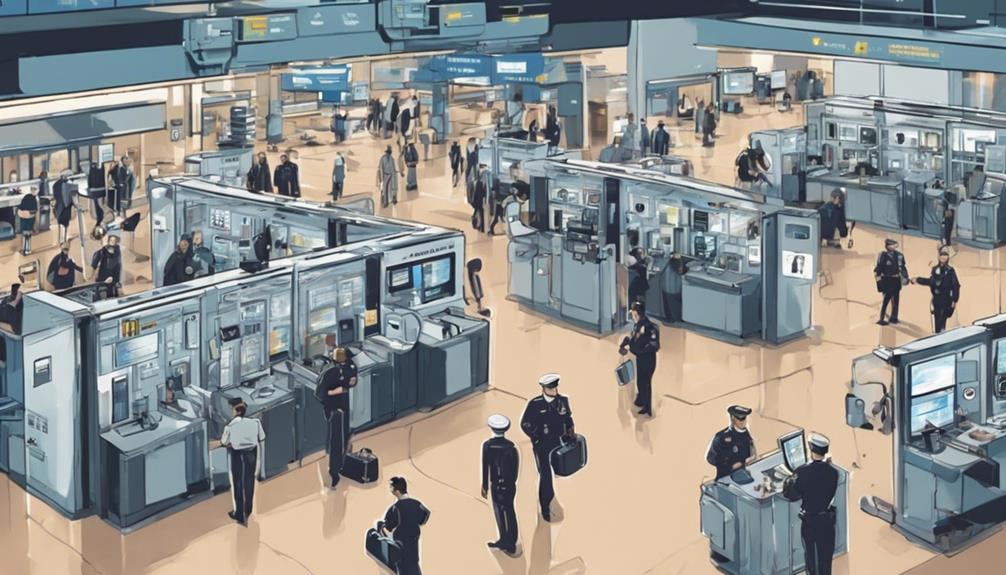
When maintaining restricted zones, you must secure access points with robust locking mechanisms that comply with regulatory standards.
It’s vital for locksmiths and access control systems to work in tandem to guarantee that all security protocols are followed meticulously.
Implement key management systems that confirm only authorized personnel can obtain access, minimizing security risks.
Regular audits and updates to these systems are essential to mitigate potential vulnerabilities and maintain the integrity of secured areas.
Securing Access Points
Effectively securing access points within airport environments is essential for maintaining the integrity of restricted zones. High-security locks used in airports possess unique features that are significant to the overall security system.
As a professional in this field, you understand that locksmith responsibilities go beyond mere lock installation. They include evaluating vulnerabilities, implementing advanced security protocols, and ensuring that only authorized personnel gain entry to sensitive areas.
In an environment where threats are ever-evolving, your expertise in risk evaluation is essential. You must continuously review and adapt your strategies to meet stringent regulatory standards, ensuring that access points remain impenetrable.
You wield the power to protect critical areas within the airport. By applying your technical expertise and regulatory knowledge, you can implement state-of-the-art locking systems, integrating them seamlessly with other security measures like surveillance and biometric access controls.
Your role is pivotal in preventing unauthorized access, thereby safeguarding passengers and airport operations.
Stay vigilant and proactive, constantly updating your skills and tools to counter potential threats. Your commitment to excellence in securing access points not only upholds the sanctity of restricted zones but also reinforces the airport’s overall security framework.
Key Management Systems
Building on the foundation of securing access points, the focus shifts to the implementation of key management systems, which are essential for maintaining the integrity of restricted zones. You must guarantee these systems adhere to stringent key security protocols to mitigate unauthorized access risks. With digital key solutions, your control over who can enter these critical areas becomes more robust and traceable. Digital systems offer real-time tracking, eliminating the uncertainty of traditional keys.
Consider this table to understand the layers of key management systems:
| Feature | Traditional Keys | Digital Key Solutions |
|---|---|---|
| Key Tracking | Manual logs | Automated, real-time |
| Access Revocation | Re-keying required | Instant, configurable |
| Audit Trails | Limited or non-existent | Thorough, detailed |
| Regulatory Compliance | Challenging to maintain | Streamlined updates |
Digital key solutions align with regulatory standards, allowing you to maintain compliance effortlessly. As a decision-maker, you’re empowered to swiftly respond to threats and enforce access rights with precision. This capability not only boosts security but also enhances operational efficiency. The implementation of these systems is not just a best practice; it’s a necessity in today’s ever-evolving security landscape. By leveraging advanced key management technologies, you guarantee that restricted zones remain impenetrable, thereby safeguarding sensitive areas.
Emergency Lockout Solutions
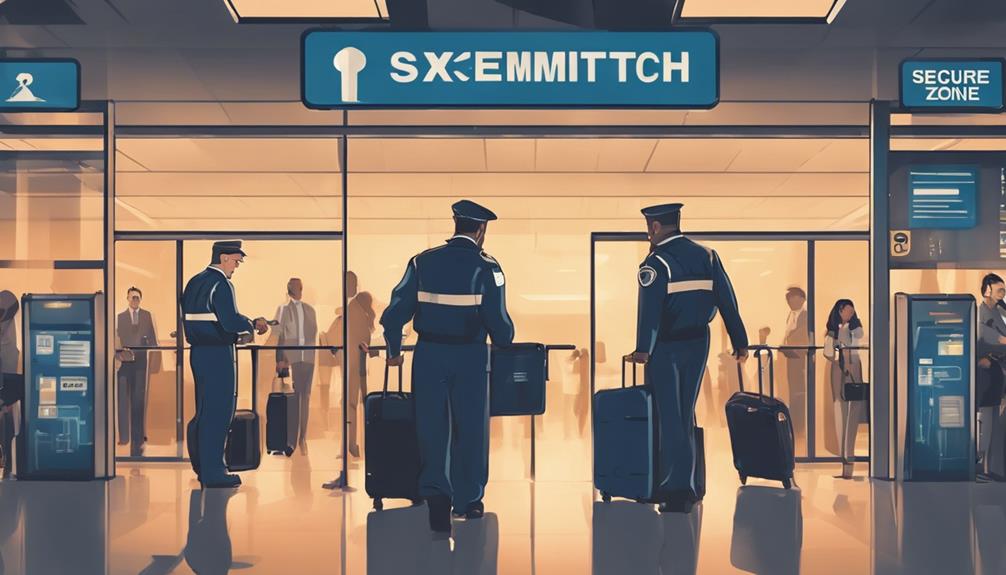
When you’re faced with an emergency lockout situation in an airport, rapid response techniques are vital to maintaining security and minimizing disruptions.
It’s important to recognize the role of locksmiths in these critical airport situations, as their expertise guarantees that access restoration procedures are both efficient and compliant with aviation security regulations.
By understanding these protocols, you mitigate risks associated with unauthorized access and operational delays.
You must employ efficient access restoration procedures that comply with aviation security regulations to guarantee authorized personnel can swiftly regain entry.
Rapid Response Techniques
Faced with the significant need for rapid response in airport security, locksmiths employ advanced techniques to address emergency lockout situations efficiently. These services include key tasks such as lock installations and rekeying, which are essential for maintaining security in high-traffic areas.
As someone aspiring to be at the forefront of security management, you understand how important it’s to have locksmiths trained in specialized methods. Their expertise guarantees minimal disruption and maximum safety. These professionals aren’t just skilled with locks—they’re well-versed in security protocols, allowing them to assess and neutralize risks quickly.
To gain a competitive edge, consider these key components of rapid response techniques:
- Locksmith Training: Continuous education in the latest lock technologies and emergency response strategies is crucial. This prepares locksmiths to handle diverse lockout scenarios swiftly.
- Security Protocols: Adhering to stringent regulations and implementing robust security measures guarantees that all actions comply with legal standards, enhancing overall safety.
- Risk Assessment: A thorough evaluation of the situation allows locksmiths to employ the most effective solution, minimizing potential threats and preventing unauthorized access.
Access Restoration Procedures
In certain situations, locksmiths play a critical role in emergency lockout solutions, enabling quick access restoration in high-security environments like airports. The unique challenges locksmiths face at airports, such as high-security requirements and handling a large volume of locks and keys, necessitate specialized skills and expertise.
When access is unexpectedly restricted, every minute counts. You must guarantee emergency protocols are flawlessly executed to maintain seamless operations and security. Locksmiths, equipped with specialized tools and knowledge, swiftly reestablish access, minimizing disruptions.
Performing access audits is integral to the process. By conducting these audits, you can identify potential vulnerabilities and guarantee compliance with stringent airport security regulations.
Details matter; locksmiths assess lock integrity, access points, and security systems to prevent future lockouts and unauthorized access. By proactively addressing these issues, you uphold the airport’s security standards while enhancing efficiency.
In the high-stakes environment of airport security, risk assessment is paramount. Locksmiths must evaluate each situation, determining the best approach to restore access without compromising security.
Their expertise in handling complex lock systems ensures that you maintain control over sensitive areas, safeguarding passengers and assets. Trusting locksmiths with access restoration procedures not only empowers you with quick solutions but also reinforces the resilience of your airport’s security framework, maintaining the delicate balance between accessibility and security.
Partnering With Low Rate Locksmith
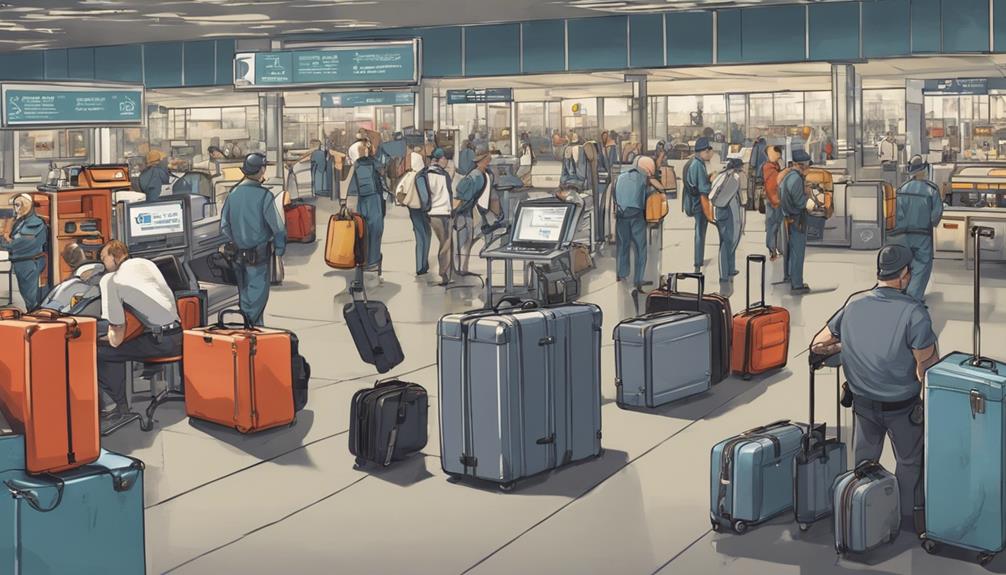
Through strategic collaboration with Low Rate Locksmith, airport security can greatly enhance its lock and key management systems, guaranteeing both efficiency and compliance with regulatory standards.
By forming locksmith partnerships, you gain access to specialized services that streamline your security processes. Low Rate Locksmith offers unmatched expertise in security collaboration, allowing your airport to implement robust measures tailored to your specific needs. Their nationwide 24/7 car access service guarantees that any emergency lock situations are handled swiftly, which is vital for maintaining airport operations.
Additionally, their use of advanced tools and techniques prevents damage to locks and enhances overall security.
Key Advantages of Partnering with Low Rate Locksmith:
- Enhanced Security Protocols: Low Rate Locksmith brings state-of-the-art technology and innovative solutions that bolster your airport’s existing security measures. Their expertise in high-security lock systems guarantees that restricted zones remain inaccessible to unauthorized personnel.
- Efficient Risk Management: With their adept risk assessment capabilities, Low Rate Locksmith can identify potential vulnerabilities in your current systems and recommend targeted improvements. This proactive approach minimizes security breaches and guarantees compliance with stringent regulatory standards.
- Cost-effective Solutions: Partnering with Low Rate Locksmith doesn’t just enhance security; it does so economically. Their competitive pricing models allow you to optimize your security budget without compromising on quality or effectiveness.
Frequently Asked Questions
How Do Locksmiths Handle Lost Keys in Airport Environments?
When you lose keys in an airport, locksmiths swiftly initiate key recovery protocols. They guarantee emergency access with precision, balancing regulatory compliance and risk assessment, empowering you by restoring control and security swiftly and effectively.
Picture a fortress of security. You establish key control by tracking every key’s journey. To prevent duplication, enforce strict protocols, use patented keys, and leverage technology to guarantee only authorized personnel can access critical areas.
How Are Locksmiths Vetted for Working in High-Security Airport Zones?
You undergo rigorous background checks and obtain necessary security clearances to guarantee absolute trustworthiness. Regulatory knowledge and technical expertise are essential, enabling you to assess risks effectively and maintain control in high-security airport zones.
What Role Do Locksmiths Play in Ensuring Compliance With Aviation Security Regulations?
Imagine the key to airport security compliance in your hands. You verify aviation regulations are met through rigorous locksmith training, evaluating risks, and applying your technical expertise. Your efforts fortify restricted zones, maintaining the integrity of security protocols.
How Do Locksmiths Stay Updated With Advances in Airport Security Technology?
You stay updated with airport security technology by actively engaging in industry workshops, mastering keyless systems, and understanding biometric locks. Assess risks and guarantee compliance by continually enhancing your regulatory knowledge to maintain your competitive edge in security.
Conclusion
You’re the silent guardian of airport security, ensuring everything from passenger luggage to restricted zones is locked down tight. Like a master conductor, you orchestrate the symphony of key systems, biometric locks, and electronic controls, harmonizing them with stringent regulations. Your quick response to emergencies and keen eye for vulnerabilities keep the system resilient. Trust in your expertise is unwavering, as you partner with specialists like Low Rate Locksmith to fortify the airport’s secure fortress.
Airports We Service:
Washington, D.C. (IAD)
Washington, D.C. (DCA)

